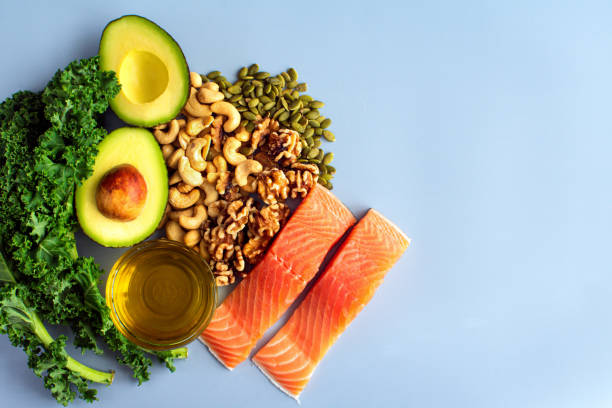Welcome to
On Feet Nation
Members
-
Maxine Online
-
Phillip Online
-
shabirkhansehta Online
-
asimseo Online
-
E. Aschauer GmbH Online
-
Barbara Online
-
Makarand Mukund Vaidya Online
-
mark smith Online
-
GRAHAM MULFY Online
Blog Posts
Top Content
Important Hints For Healthier Eating

Healthy eating is important for everyone, whether you're looking to lose pounds or regulate the blood sugar levels. But with all the conflicting nutritional advice available, it can be hard to figure out what to do.
To help you on your path to a better diet Here are dietitian-approved tips for making smart decisions.
Fruits and Vegetables with a variety of
A healthy diet is not simply removing unhealthy cholesterol. It's about consuming a variety of food. A wide variety of healthy foods can help you keep an appropriate weight and reduces the chance of developing heart disease, diabetes, cancer as well as high blood pressure.
A general rule is to aim for at least five servings of fruits and vegetables every throughout the day. Include dark green, red and orange veggies along with legumes and beans. Combine fresh, frozen and canned vegetables. Look for "reduced salt" or "no-salt added" canned options.
Take a look at different fruit and vegetables prepared, raw or cooked and grilled. Remember that higher-calorie fruit and vegetables (such such as avocados and berries) must be consumed in moderate amounts. Be sure to eat dairy products with low fat and proteins from eggs, fish, poultry as well as meats that are lean and beans.
Take advantage of Whole Grains
Diets rich in whole grains are associated with a lower prevalence of type 2 Heart disease, Diabetes and certain cancers. Whole grains are also a source of various vital nutrients like B vitamin, fiber, and phytochemicals. They can reduce inflammation because they provide fuel to good microbes that live in your gut.
There are a variety of food items in grocery aisles that tout "whole-grain quality". But be careful--some of these products aren't actually whole grain.
For a grain to be considered a total grain, bran endosperm and germ must remain in their original proportions. The germ and bran have been taken out of "refined" grains such as flour to leave only the endosperm. Look at "whole grains" on the label of a food item or products that have the Whole Grain Stamp created by the Whole Grains Council.
Increase your intake of healthy meats
The risk of developing bowel cancer can be aggravated from eating too much red meat. Choose lean cuts as well as a reduction in your consumption. Try beef tenderloin as well as back bacon and skinless poultry. They're not high in fat, high in protein, and are rich in vitamin B12 as well as niacin.
Fattier meats have higher calories as well as more fat compared to alternatives that are lean, making these choices less suitable for those who want to watch their cholesterol or weight. They also have more saturated fats, which are unhealthy for you. Try lean beef, chicken turkey, pork and even lamb. Making these choices and employing healthier cooking methods, such as baking, boiling, or stewing will allow you to keep your fat intake low. Aim to consume 7 portions of each of these food products per week.
Eat the Variety of Dairy Products
Dairy products are loaded with calcium, protein along with other essential nutrients that your body needs. It is recommended to consume adequate dairy products (or alternatives to dairy) every day.
Incorporate yogurt, milk and cheese to your diet daily. Try low-fat or lactose free milk in case you can't digest lactose. Fortified rice or soy "milks" and unsweetened nut-based yogurts are an element of the Dairy Group too. Once you like to learn additional information about health, you must sneak a peek at europacolon website.
The Dairy Group provides the majority of magnesium, calcium and potassium that is found in our food as well as vitamin A, D and the choline. By choosing more low-fat, dairy products that are fat-free, instead of cheese, you'll be able to boost the quantity of magnesium and calcium in your diet while reducing the amount of saturated fat and sodium. Dairy products could help manage blood pressure, reduce the risk of developing diabetes and heart disease and even prevent cancer.
Take More Vegetables and Eat More
There are many good reasons to consume more vegetablesand not the least the fact that they're packed with vitamins and minerals. They are an excellent source of protein without the fats and calories that meat is packed with. This is especially helpful for vegetarians and those on medical diets.
Consuming enough vegetables can reduce the risk of heart illness and reduce cholesterol levels. Potassium, a mineral that helps to prevent hypertension is also found in the vegetables. Fiber from vegetables fuels the healthy bacteria that live in the intestines of your. For ensuring you consume the recommended 2 to 4 cups of fresh vegetables each day, keep a wide variety within your fridge. All vegetables are counted, even starchy veggies such as potatoes and leafy greens. Steam or roast veggies to add flavor, but avoid adding the salt or unhealthy oils and sauces.
© 2024 Created by PH the vintage.
Powered by
![]()
You need to be a member of On Feet Nation to add comments!
Join On Feet Nation